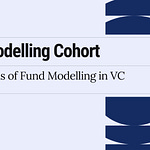“It might not sound very important… but we’ve seen enough horror stories to know incorporation decisions can cost founders hundreds of millions.” -Réna Kakon
Why Incorporation Decisions Are Make-or-Break for Startups
Founders rarely wake up thinking about tax jurisdictions. Between finding product-market fit and closing your first round, setting up your legal entity can feel like back-office admin you’ll figure out later.
But as Rena and Tom shared in our recent Incorporation Masterclass, a single misstep at incorporation can trigger cascading problems, sometimes worth tens or even hundreds of millions in unexpected taxes, failed flips, or blocked investments.
So why do so many founders still default to Delaware, or just incorporate wherever they live? Because no one’s ever given them a better framework, until now.
Scroll down to access your resources
Why Incorporation Isn’t “Just a Form”
“Incorporation is not glamorous. But you’d be amazed how many exits or fundraising rounds are derailed because the company was set up in the wrong place,” says Tom.
They shared multiple horror stories, including:
A Brazilian company that paid $100M in U.S. taxes on a $600M exit, despite having no U.S. operations, just because they were incorporated in California and later flipped to Delaware.
German founders hit with surprise income tax bills after holding U.S. shares personally, when they should’ve used personal holding companies.
Founders blocked from joining YC or closing U.S. rounds because flips were legally or financially impossible.
The bottom line: Incorporation affects your taxes, your ability to raise capital, your eventual exit, and your operating efficiency.
The Framework: How to Make Better Incorporation Decisions
Rather than handing out one-size-fits-all advice (e.g., “always use Delaware”), Rena and Tom propose a decision-making framework that combines:
1. Objective criteria:
They benchmark jurisdictions on founder tax treatment, group-level tax efficiency, ease of equity issuance, R&D incentives, and legal/admin friction.
2. Subjective company context:
Who are the founders? Where do they live and pay tax? Where is the CTO? Where is the target market? Who’s leading the round? What’s the long-term exit vision?
The result is a scorecard and free tool that maps this context into recommended jurisdictions- whether that’s the UK, Netherlands, Estonia, or yes, Delaware.
A Better Default: Think Ahead, Avoid the Flip
While U.S. flips are common (especially at YC or when dealing with U.S. VCs), they’re often expensive, complex, and not always necessary.
“We’ve flipped companies at a cost of $150-200K, with six months of admin, just because of decisions made early without the right advice,” says Rena. “It’s avoidable.”
If you’re an angel or emerging GP investing in frontier or emerging markets, take note: early-stage is the best time to get this right. Even spending 30 minutes with founders using the checklist can save years of pain.
TL;DR: How to Incorporate Smartly
Don’t blindly default to Delaware.
Ask where your founders live, where the product is sold, and who your investors are.
Avoid personal shareholding in the U.S. if you're a tax resident in Germany, France, or similar.
Use holding companies when possible.
If flipping is needed, do it early or don’t do it at all.
Resources
Access the resources crafted specifically for this session below.
Listen to this episode with a 7-day free trial
Subscribe to EUVC | The European VC to listen to this post and get 7 days of free access to the full post archives.










